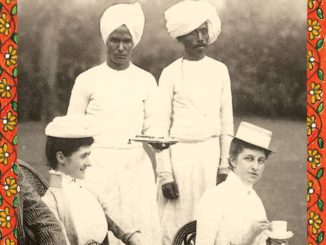
All readers of the Bible know that there are many stories depicting human frailty that are truly sad. I think one of the most pitiful scenes in history was that of King David running from his own son, Absalom. This promised to be the disaster of his life, “And David went up by the ascent of mount Olivet, and wept as he went up, and had his head covered, and he went barefoot: and all the people that was with him covered every man his head, and they went up, weeping as they went up.” 2 Sam 15:30. The only hope David seemed to have was his prayer for God to “turn Ahithophel’s counsel,” his chief counselor, “into foolishness” for as a conspirator, he would be Absalom’s chief adviser.
Quite a few of David’s friends joined him on the way, but he sent back some including Hushai, and the priests Zadok and Abiathar in an apparent effort to counteract the conspiracy and keep himself informed of Absalom’s movements, while he moved on with his little army and the people. A short distance beyond Mount Olivet, a servant of Mephibosheth came to him with a couple of donkeys loaded with food and so in his great and bitter misfortune he had some consolation and encouragement.
David had just reached Bahurim in his flight when there “came out a man of the family of the house of Saul, whose name was Shimei, the son of Gera.” 2 Sam 16:5. It is here where the scene of sympathy changed and instead of comforting the king and wishing him success in the end, this man walked along the hill-side and cursed the king in his grief and misfortune. More than this, he threw stones at David and at his retinue of servants and followers; being himself in a safe place where returning stones would be hampered, and knowing David was in a hurry.
Shimei, whose youth did early promise bring,
Of zeal to God and hatred to his king;
Did wisely from expensive sins refrain,
And never broke the Sabbath but for gain.
From John Dryden (1631-1700)’s satire of Absalom and Achitophel.
Shimei profaned David by calling him the devil, a murderer and he accused him of usurping Saul’s crown. To add insult to injury he sharply told the king that Absalom’s turn against him was a just retribution for his role in the destruction of Saul’s house. “The LORD has repaid you for all the blood you shed in the household of Saul, in whose place you have reigned. The LORD has handed the kingdom over to your son Absalom. You have come to ruin because you are a man of blood!” 2 Samuel 16:8. How long he continued in his berating of David and his friends we do not know.
Abishai, proposed to go and kill Shimei, but David, being a kind hearted man in his sorrow and misfortune, as well as in joy and prosperity, discouraged it and said instead, “let him curse, for the LORD has told him to.” 2 Samuel 16:11b. In David’s mind, if God sent this grievous episode on the way, then he must submit, and then he turned to the hope of the situation, and remarked to his friends: “It may be that the LORD will see my distress and repay me with good for the cursing I am receiving today.” 2 Samuel 16:12.
David argued that his own son was seeking his life, and how much more might Shimei curse and stone and cast dust at him. In other words, he theologically perceived the whole predicament as a designing providence, and left the solution of its mystery to God. In his magnanimity he forgave Shimei when he returned victorious over his son, Absalom. Submission to God’s will in misfortune, generous clemency to his enemies in victory, this was kind-hearted and lofty-minded David, and we know that he would have spared Absalom, the arch traitor, above all, had he had the chance.
But the most spineless creature in the group of his enemies and persecutors on this occasion was Shimei. His conduct was the very baseness of all cowardice and meanness, throwing stones, casting dust, cursing when he thought he himself was safe. But he became a pathetic, wretched and submissive human at the feet of David when David returned victorious from the bloody field of Ephraim.
So it is always with the coward and the enemy who will take advantage of our misfortunes and insult and hurt us, seeking to gain ascendency over us. It must have been a well known fact that God had deposed Saul and his house and had exalted David to the throne and scepter of Israel. David had been exceptionally kind to Saul and his family, although Saul, in his life time had sought every means which jealousy and envy could invent to destroy David. Even when Saul and Jonathan fell on Gilboa’s gory heights, slain by their own hands, David gave vent, in the noblest generosity of spirit ever written, to the grief and appreciation of his own heart. Yet, Shimei and Saul’s descendants, like Saul himself, still cherished the spirit of malice and revenge toward, “the man after God’s own heart.”
Jealousy and envy, littleness, and cowardice in man are always blind to God’s purposes and human generosity cannot transform cowardice and jealousy into kindness and honor. These negative qualities in human nature are always at war with every thing good and lofty above them, and when misfortune or affliction comes to the objects of their envy or revenge, they are always on hand to add insult to injury.
David had been kind to Shimei and his family. He forgave him of the wrong perpetrated at Bahurim, but we suspect Shimei would have repeated his despicable drama the next day, if the opportunity had been afforded. Shimei was the character personated to whom Shakespeare spoke when he said:
You are the hare of whom the proverb goes,
Whose valour plucks dead lions by the beard.
We learn that the miseries of David were turned into joy, and the insults of his enemies recoiled upon their own heads, because God was with him. He acted Christ-like on this occasion and in fact in all this misfortune he seemed a type of Christ. Say what you will, Christ teaches the only remedy for the cure of evil and for the conquest of enmity and meanness: forgive your enemies, do good to them that despitefully use you, bless the cursers, and you will heap coals of fire upon the heads of those who would injure you.
Under all circumstances we must love and forgive our enemies. But always be aware of them. David ordered his heir Solomon to punish Shimei (I Kings 2:8-9). Solomon accordingly ordered Shimei to take up residence in Jerusalem, forbidding him on pain of death to leave the city (I Kings 2:36-38). Three years later, Shimei nevertheless journeyed to Gath to bring back two of his runaway slaves; on his return Solomon had him killed (I Kings 2:39-46).
Shimei’s of the world will throw stones, curse, and then run and hide. But we are more than conquerors through Him who loves us so.
Proudly WWW.PONIREVO.COM



